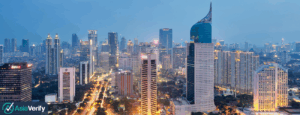Understand how Singapore’s updated AML framework changes onboarding and compliance obligations

The Inter-Ministerial Committee (IMC) of Singapore has released a comprehensive report detailing recommendations to enhance the country’s Anti-Money Laundering (AML) framework. Prompted by insights gained from a significant money laundering case in August 2023, the IMC aims to ensure that Singapore’s defences remain robust against increasingly sophisticated criminal tactics.
A collaborative approach
Central to the IMC’s strategy is a “whole-of-society” approach, emphasising the importance of collaboration between the government and all relevant stakeholders who serve as the frontline of defense against financial crimes.
The IMC’s review concentrated on five critical areas:
- Preventing misuse of corporate structures:
Implementing measures to stop money launderers from exploiting companies and other corporate entities. - Enhancing financial institutions’ controls:
Strengthening how financial institutions monitor and report suspicious transactions, and promoting better collaboration between institutions and authorities. - Focusing on ‘gatekeepers’:
Improving the capabilities of sectors like corporate service providers, real estate agents and dealers in precious stones and metals to guard against money laundering risks, including assessing current regulatory frameworks. - Centralising monitoring efforts:
Enhancing the government’s ability to detect suspicious activities by improving coordination and information-sharing across agencies. - Strengthening enforcement tools:
Equipping law enforcement with better legislative levers and resources to take decisive action against money launderers, including confiscating illicit proceeds.
Book a 15-min demo and see how AsiaVerify accelerates onboarding, reduces false positives, and keeps you audit-ready.
A three-pronged approach
The recommendations aim to fortify the three main pillars of Singapore’s AML framework:
- Proactive prevention:
Raising AML standards for key sectors, supporting gatekeepers in enhancing their AML capabilities, engaging non-regulated sectors to increase awareness of risks, and deterring the misuse of corporate entities. - Timely detection:
Improving internal government coordination and expanding data-sharing channels with gatekeepers to identify illicit activities more swiftly. - Effective enforcement:
Strengthening laws to better prosecute money laundering offences, regularly reviewing penalty frameworks to ensure they are deterrent, and improving inter-agency cooperation for prompt action against illicit activities.
Do these updates impact your business?
The enhanced AML framework signals a stricter regulatory environment that could directly affect businesses operating in or with Singapore. Organisations may need to reassess and strengthen current AML/CFT policies to comply with new regulations, which may involve implementing more rigorous Know Your Business (KYB) and Ultimate Beneficial Ownership (UBO) checks to ensure all entities and individuals involved are thoroughly vetted.
AsiaVerify is here to help your organisation stay compliant, mitigate risk and unlock growth in Singapore and beyond. For more information, contact us today.
Have questions or need tailored advice? Our experts are here to help with compliance, data, or partnership needs.








